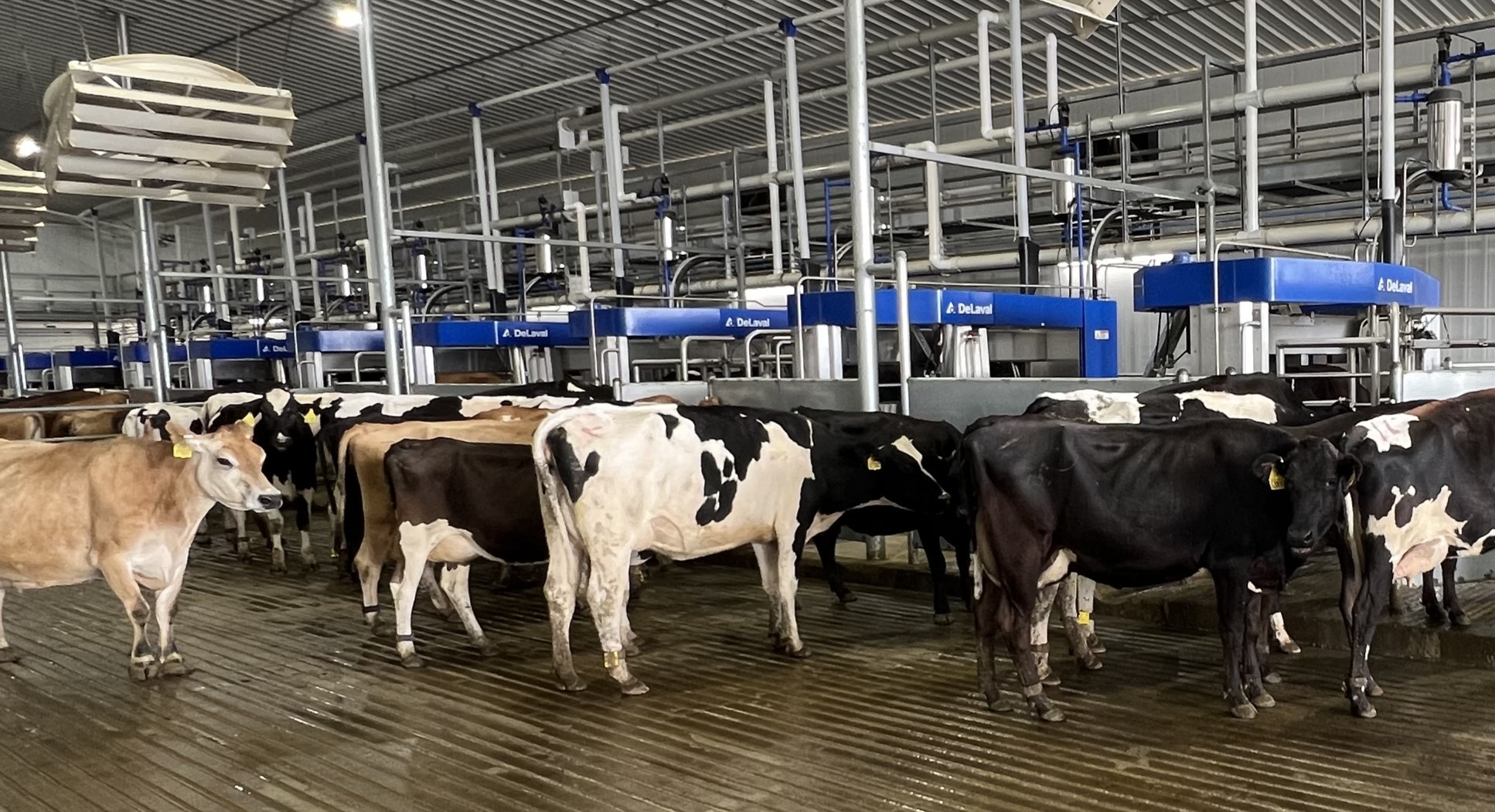
DeLaval introduces VMS™ Batch Milking
KANSAS CITY, MO. – Jan. 4, 2024 – DeLaval, a global leader in dairy farming solutions, announces the launch of VMS™ Batch Milking, a method advancement in robotic milking technology that helps reduce labor and increase efficiency. With over two decades of success with VMS robotic milking systems, DeLaval continues to innovate and empower dairy farmers with solutions that improve their operations.
DeLaval VMS Batch Milking offers a new way to efficiently milk larger groups of cows. The method, which has gained global traction with more than 10 installations milking a total of 10,000 cows worldwide, involves dividing herds into groups and bringing them to the milking center, similar to traditional parlor or rotary milking. The facility layout often features multiple rows of VMS units, resembling a parallel parlor. After milking, cows exit the robots and follow an exit lane, guided by a selection gate to a desired area, whether that be a sorting area or back to their original pen, all without the need for additional labor. Farms accustomed to conventional milking setups can seamlessly transition to robotics with VMS batch milking and still retain many of their familiar routines and practices.

“Reducing labor requirements to milk the same number of cows as a traditional parlor and the individual cow data captured by DeLaval VMS makes VMS batch milking a seamless combination of precision robotic technology and traditional milking routine familiarity,” said Jason French, VMS solution manager at DeLaval. “This approach is the next accessible step for dairy farmers looking to transform and improve their operational efficiency.”
Rancho Pepper Dairy, the first farm in the U.S. to adopt VMS Batch Milking, installed 22 DeLaval VMS V300 units in 2022 to efficiently milk 2,000 cows. Dawn Dial, dairy manager at Rancho Pepper Dairy, praises the system for its ability to capture individual cow data and minimize required labor.
“These cows are very relaxed, and I feel that they are more relaxed than any parallel [parlor] I have ever seen in my life,” said Dial. “I would definitely do this again.”
As the cost of labor rises and availability becomes limited, dairy farms are increasingly exploring the benefits of milking robotics. VMS batch milking stands out by automating the milking process, promoting udder health and providing actionable cow data. The system allows farm staff to support robots effectively, ensuring continuous operation. DeLaval is confident VMS batch milking success will continue to grow as more farmers seek to combine the benefits of milking robots with their established management styles.
To further introduce VMS batch milking to the North American dairy industry, DeLaval is hosting a series of educational virtual webinars. The series will cover the workings and advantages of VMS Batch Milking, and guest speakers with extensive batch milking experience will contribute to the sessions. Available sessions include:
Introduction to DeLaval VMS Batch Milking
Thursday, January 25, from 12 to 1 p.m. CST
Experience with VMS Batch Milking featuring Ranch Pepper Dairy
Thursday, February 22, from 12 to 1 p.m. CST
VMS batch milking around the world with Robert Jensen, DeLaval Solution Specialist, AMS
Thursday, March 21, from 12 to 1 p.m. CST
Producers, consultants, academics, and other industry professionals are invited to all three virtual sessions. For more information about the DeLaval VMS Batch Milking webinar series, visit https://www.delaval.com/en-us/learn/events/vms-batch-milking-webinar-series/